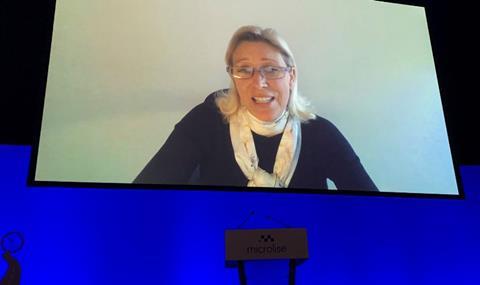
Transport minister Baroness Vere (pictured) has urged fleet operators to review their shift patterns to encourage and retain a more diverse workforce.
In a virtual presentation at the Microlise Transport Conference in Coventry last week, she reminded delegates that only 22% of industry roles are currently held by women and that they make up just 2% of the overall driver pool.
“People under 44-years-old are under-represented," she added. "We need to make sure the industry is more attractive to them. Many households rely on two incomes so flexible working would open the industry to a younger and more diverse workforce."
Vere pointed to recent research showing the average journey an articulated HGV makes for a job is 84 miles: “So even on the busiest roads that would not require nine hours of driving on a 13-hour shift,” she said.
“There are examples of your colleague companies flexing shifts to try to retain drivers as their circumstances change. This good practice needs to be shared in the industry to ensure it becomes an increasingly attractive place to work and good drivers are retained."
Responding to claims that the government was not doing enough to ease the sector’s challenges, she said it had now put in place 33 measures to alleviate the driver shortage, including the recent £34m investment in HGV driver bootcamps, and a total investment in driver facilities of £52.5m since the beginning of last year.
She also pointed to the work the government is doing with Job Centre Plus to deliver HGV driver training schemes and efforts by the DVSA to maximise testing capacity and streamline the testing process.
Turning to rising costs, Vere said a government announcement in February allowing hauliers to choose HGVs with elongated cabs and aerodynamic features could result in fuel savings of up to 15%.
"Combined with the fuel duty cut in the spring statement these are important short-term steps to helping the industry with high fuel expenditure," she insisted.
"But the long-term game is to wean the industry off fossil fuels. In March, we announced a two-year extension to the plug-in van and truck grant scheme. We have committed two-and-a-half billion pounds to support the transition to zero emission vehicles. To date, plug-in vehicle grant schemes have supported the purchase of over 450,000 ultra low emission vehicles including 300,000 zero emission vehicles. This will lead to tens of thousands of greener vans and trucks.
"We are also trialling three zero emissions HGV technologies at scale and backing further research, and we are improving the online freight portal which provides advice to road freight operators.
"It is vital to address the issues holding the sector back," Vere concluded. "And to unclog the testing and licensing blockages and ensure freight is at the heart of our green economic recovery."













